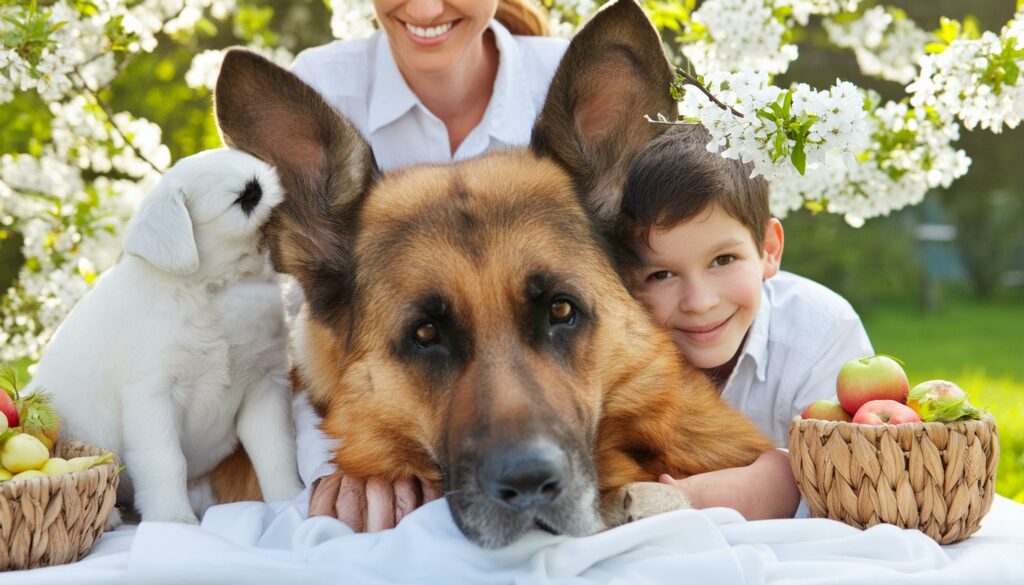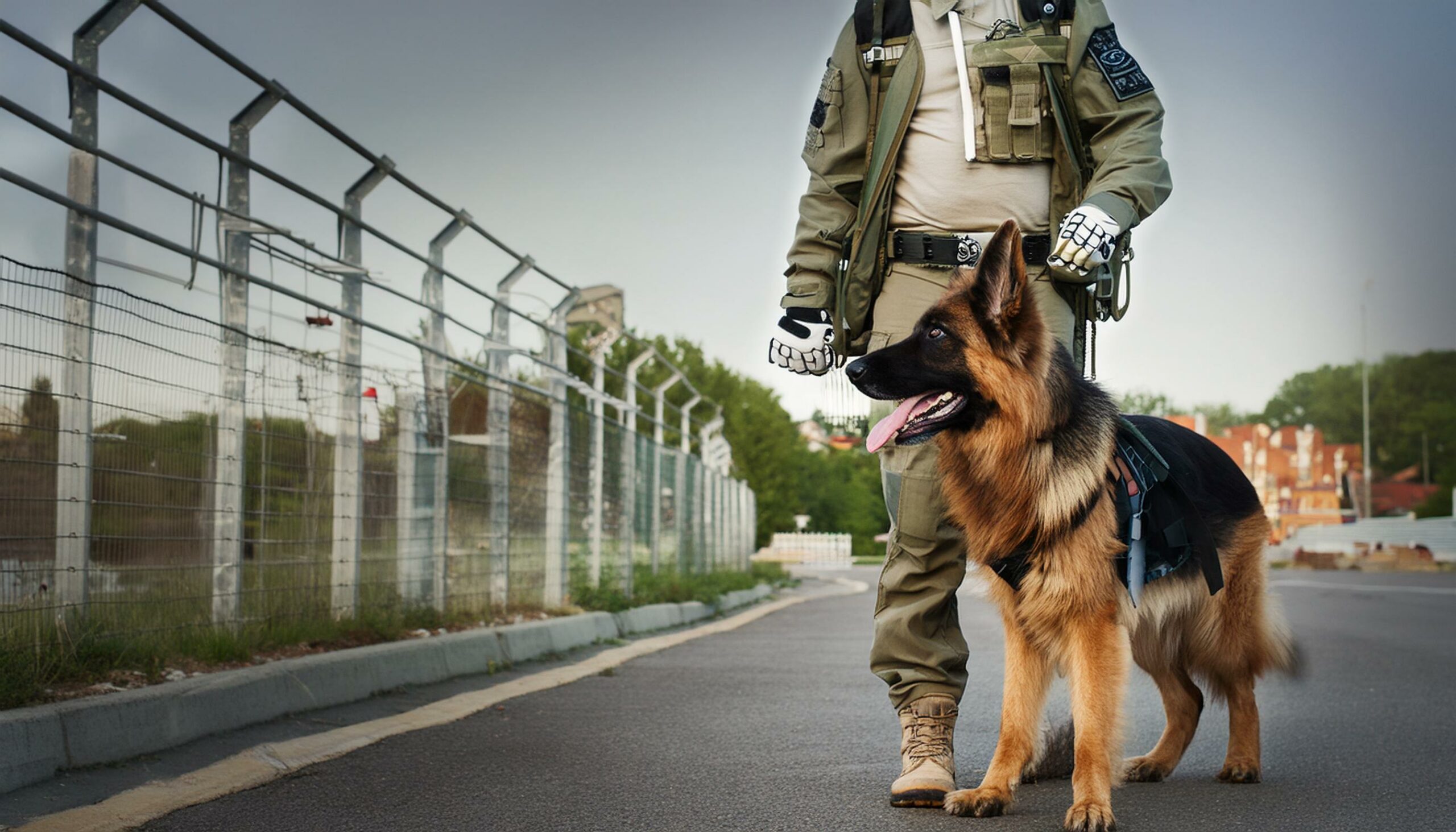German Shepherds stand among the most beloved dog breeds across the globe. Their distinct characteristics—intelligence, loyalty, and adaptability—make them exceptional companions. However, prospective owners often ponder over their safety: Are German Shepherds safe around children? How do they fare with other pets? This comprehensive guide delves into the essentials of owning a German Shepherd, focusing on their temperament, training needs, and safety considerations.
Understanding German Shepherds
German Shepherds originated from Germany, initially bred for herding and guarding sheep. Over time, their role has evolved due to their versatility, making them favorites for various roles including police work, search-and-rescue operations, and as family pets.
Temperament
The temperament of a German Shepherd is a blend of courage, intelligence, and loyalty. They are known for their confidence and fearlessness, paired with a keen sense of alertness to their surroundings. This makes them excellent protectors of their families. Nevertheless, their demeanor heavily depends on their upbringing, training, and socialization.
Training Needs
Training is crucial in shaping a German Shepherd’s behavior. These dogs thrive on mental and physical stimulation and require consistent, structured training sessions. Early socialization—exposure to different people, environments, and situations—is essential to develop a well-rounded dog. A well-trained German Shepherd is typically calm and controlled, even in unfamiliar or stressful situations.
Safety Considerations with German Shepherds
When trained and socialized properly, German Shepherds can be incredibly gentle and protective around children. They often form strong bonds with the kids in their family, showing patience and guardianship. However, interactions between any dog and children should always be supervised, especially when the dog is still adapting to family life.
With Other Pets

German Shepherds can coexist peacefully with other pets, particularly if raised with them from a young age. However, their strong prey drive can sometimes lead them to chase smaller animals. Therefore, gradual introductions and supervised interactions are important when introducing new pets into the home.
In Public Spaces
Owning a German Shepherd requires a commitment to ongoing training and socialization. In public spaces, they should be handled by someone who can assert control if needed. They generally behave well in public if they understand that their owner is in charge.
Health and Maintenance
Like all breeds, German Shepherds are susceptible to specific health issues. Some of the most common concerns include hip and elbow dysplasia, which can be mitigated with regular vet check-ups and maintaining a healthy weight. Their dense fur requires regular grooming to manage shedding and maintain skin health.
Common Health Problems
Apart from hip and elbow dysplasia, German Shepherds may also face genetic disorders such as degenerative myelopathy and various heart diseases. Awareness and proactive health management can lead to early diagnosis and treatment, enhancing the quality of life for these dogs.
Exercise Requirements

German Shepherds require a lot of exercise to keep them physically and mentally healthy. Lack of adequate exercise can lead to behavior issues such as excessive barking, digging, and other forms of destructive behavior. Daily walks, runs, and play sessions are necessary to keep them engaged and fit.
Legal and Insurance Issues Breed-Specific Legislation
Some areas have breed-specific legislation that affects German Shepherd ownership, which may include restrictions or additional requirements for owning them. It’s important for potential owners to research local laws to ensure compliance.
Insurance Considerations
Due to their size and strength, some insurance companies may classify German Shepherds as a higher risk breed, which can affect homeowners’ insurance policies. Prospective owners should consult with insurance providers to understand any potential impacts on their coverage.
Testimonials and Stories
Hearing from current German Shepherd owners can provide valuable insights. Many owners report that their German Shepherds are loyal and protective family members who bring a lot of joy and security to their lives. However, they also emphasize the importance of commitment to training and care.
Conclusion
German Shepherds can make safe, loving, and protective family members when their training, health, and exercise needs are met. They offer companionship and security but require dedicated care and attention to thrive.
FAQs
Are German Shepherds good family dogs?
Yes, when properly trained and socialized, they are excellent family pets.
Can German Shepherds live in apartments?
While they can adapt, they thrive better in homes with more space.
How much exercise does a German Shepherd need?
They need several hours of physical and mental stimulation daily.
Do German Shepherds require special grooming?
Yes, regular brushing is needed to manage their shedding.
What are the typical health concerns for German Shepherds?
Common issues include hip dysplasia, elbow dysplasia, and genetic disorders.
